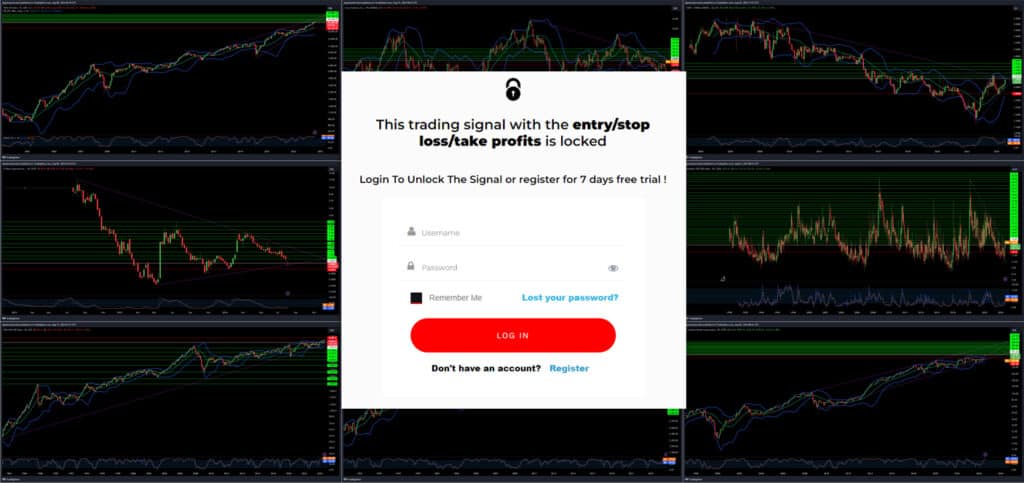Greetings, fellow traders! Today, I’m excited to delve into the world of CFD trading and discuss some proven strategies that can significantly enhance your success in this dynamic market. As we all know, CFD trading offers immense opportunities for profit, but it also comes with its fair share of risks. By employing effective techniques and following a well-thought-out plan, you can maximize your profits and minimize those risks.
In this article, we will explore key strategies that have been proven to work in CFD trading. From understanding market trends and analysis to mastering risk management and position sizing, we will uncover the insights and tools you need to thrive in this fast-paced industry.
Key Takeaways
- By understanding market trends and analysis, you can make informed decisions and capitalize on market opportunities.
- Effective risk management and proper position sizing are vital for protecting your capital and minimizing potential losses.
- Developing discipline and emotional control will help you avoid impulsive decisions and stay focused on your trading plan.
- Continuous learning and adaptation are essential to stay ahead of the game and adapt to changing market conditions.
- Implementing these proven strategies can greatly increase your chances of success in CFD trading.
Now that we have outlined the key takeaways, let’s dive deeper into each of these strategies and equip ourselves with the tools needed for successful CFD trading. Remember, success in CFD trading is never guaranteed, but by implementing these proven strategies, you can stack the odds in your favor and pave the way to long-term profitability.
Understanding Market Trends and Analysis
As a CFD trader, having a deep understanding of market trends and analysis is crucial for navigating the ever-changing financial landscape. By analyzing historical data, identifying patterns, and staying updated with market news and events, traders can make informed decisions and capitalize on market opportunities.
Examining market trends provides valuable insights into the direction and behavior of various financial instruments. It helps traders identify emerging patterns, spot potential breakouts or reversals, and determine entry and exit points for their trades. Understanding these trends can lead to more accurate predictions and better risk-reward evaluations.
“The market is a constantly evolving organism, influenced by a multitude of factors. By analyzing market trends, traders can anticipate the next moves and position themselves for success.”
Market analysis goes hand in hand with understanding market trends. Through thorough research and analysis, traders gain a comprehensive view of the market, taking into account economic indicators, geopolitical events, and industry-specific news. By monitoring these factors, traders can identify potential market catalysts that may impact the price movements of CFDs.
Implementing market analysis techniques such as technical analysis, fundamental analysis, or sentiment analysis can provide traders with additional tools to validate their trading decisions. For instance, technical analysis involves studying historical price movements, chart patterns, and indicators to predict future price actions. Fundamental analysis examines the underlying value and financial health of an asset or company. Sentiment analysis gauges market participants’ emotions and expectations.
By integrating both market trends and analysis into their trading strategies, CFD traders can gain a comprehensive understanding of the market dynamics and improve their overall trading performance.
Key Benefits of Understanding Market Trends and Analysis in CFD Trading
- Identify emerging market trends and potential trading opportunities.
- Improve accuracy in predicting price movements and market behavior.
- Enhance risk-reward evaluations and trade decisions.
- Anticipate major market catalysts and their impact on CFD prices.
- Utilize market analysis techniques to validate trading strategies.
| Market Trends | Market Analysis |
|---|---|
| Provides insights into market behavior and direction | Examines economic indicators, news, and events |
| Identifies patterns and potential breakouts or reversals | Validates trading decisions using technical, fundamental, or sentiment analysis |
| Helps determine entry and exit points for trades | Enhances risk management and trade evaluations |
Having a comprehensive grasp of market trends and analysis empowers CFD traders to navigate the markets with confidence and make informed trading decisions. By staying on top of relevant market information and employing analysis tools, traders can position themselves strategically to capitalize on market movements and achieve success in their CFD trading endeavors. Keep in mind that market conditions can change rapidly, so it’s important to continuously stay updated and adapt your strategies accordingly.
Risk Management and Position Sizing
Effective risk management and proper position sizing are vital components of successful CFD trading. As a trader, it is important to employ strategies that minimize risk and maximize potential returns. In this section, we will discuss key techniques for managing risk and determining the optimal position size in CFD trading.
“The key to successful trading is not predicting the future; it’s managing risk.”
– Paul Tudor Jones, billionaire hedge fund manager
Risk management involves setting clear parameters to control the amount of capital at risk in each trade. One effective technique is to establish a maximum acceptable loss through the use of stop-loss orders. These orders automatically trigger a trade exit when the price reaches a predetermined level, helping to limit potential losses.
Position sizing refers to determining the appropriate amount of capital to allocate to each trade based on individual risk tolerance. Traders should consider factors such as account size, risk appetite, and market conditions when determining the size of their positions. It is crucial to strike a balance between maximizing potential profits and managing potential losses.
Diversification is another important aspect of risk management. By allocating capital across different asset classes, industries, or geographical regions, traders can reduce the impact of a single trade or market event on their overall portfolio. This helps to spread and manage risk effectively.
To illustrate the importance of risk management and position sizing, let’s consider the following example:
| Trade | Risk Level | Position Size |
|---|---|---|
| Trade 1 | High | 10% of account equity |
| Trade 2 | Medium | 5% of account equity |
| Trade 3 | Low | 2% of account equity |
In this example, the trader has allocated different position sizes based on the risk level of each trade. By diversifying the position sizes, the trader reduces the potential impact of any single trade on their overall portfolio.
Proper risk management and position sizing are essential for long-term success in CFD trading. Traders who effectively manage risk and allocate capital wisely are better positioned to withstand market volatility and increase their chances of profitability.
Emphasizing Discipline and Emotional Control
When it comes to CFD trading, discipline and emotional control are essential traits for success. As a trader, I understand the importance of maintaining discipline and avoiding impulsive decisions. By adhering to a well-defined trading plan and managing my emotions, I can make rational and objective choices that lead to profitable trades.
Discipline in CFD trading means sticking to my strategy, regardless of market conditions or short-term fluctuations. It requires patience and the ability to resist the temptation of entering trades based on hasty judgments. By following a disciplined approach, I can analyze the market objectively, identify high-probability setups, and execute trades based on a well-thought-out plan.
Emotional control is equally crucial. Fear and greed can cloud judgment and lead to irrational decisions. I have learned to manage my emotions by setting realistic expectations, avoiding impulsive reactions to market movements, and staying focused on long-term goals. By controlling my emotions, I can reduce the risk of making hasty decisions that may negatively impact my trading performance.
The Benefits of Discipline and Emotional Control in CFD Trading
“Discipline is the bridge between goals and accomplishment.” – Jim Rohn
By emphasizing discipline and emotional control, traders can experience several benefits in their CFD trading journey:
- Consistent Strategy Execution: When discipline is prioritized, traders follow their strategy consistently, avoiding impulsive deviations that can lead to losses.
- Reduced Emotional Bias: Emotional control helps traders make decisions based on objective analysis rather than being influenced by fear or greed.
- Better Risk Management: Disciplined traders have a clear understanding of risk and implement appropriate risk management techniques, such as setting stop-loss orders and managing position sizes.
- Improved Trading Psychology: By managing emotions effectively, traders can reduce stress, maintain a positive mindset, and approach trading with confidence.
- Long-Term Success: Discipline and emotional control are key ingredients for building a successful trading career. Consistently applying these traits can lead to sustainable profitability and growth.
To further understand the significance of discipline and emotional control, let’s take a look at the following table:
| Discipline and Emotional Control | No Discipline and Emotional Control |
|---|---|
| Consistent profit taking | Inconsistent profits, often influenced by emotions |
| Adherence to trading plan and strategy | Impulsive trading decisions, deviating from the plan |
| High probability trades | Increased likelihood of low-quality trades |
| Effective risk management | Exposure to higher risks and potential losses |
| Better overall trading performance | Inconsistent and unpredictable trading results |
Through the practice of discipline and emotional control, CFD traders can significantly enhance their trading performance and increase their chances of long-term success. By staying disciplined and managing emotions effectively, traders can make informed decisions, reduce the impact of emotional biases, and achieve profitability in CFD trading.
Continuous Learning and Adaptation
CFD trading is a dynamic and ever-changing market. To stay ahead, traders must commit to continuous learning and adaptation. In order to thrive in this competitive environment, it is essential to stay informed about industry trends, refine trading strategies, and be open to new ideas and approaches.
Continuous learning is a key aspect of success in CFD trading. By staying up-to-date with the latest market developments, traders can gain a deeper understanding of the forces that drive price movements and make more informed trading decisions. This involves reading financial news, following market analysis reports, and attending webinars or seminars conducted by industry experts.
Adaptation is equally important in the constantly evolving CFD market. Traders need to be responsive to changes in market conditions, adjust their trading strategies accordingly, and embrace new approaches to capitalize on emerging opportunities. This requires a willingness to experiment, learn from mistakes, and adopt more effective techniques.
“The illiterate of the 21st century will not be those who cannot read and write, but those who cannot learn, unlearn, and relearn.” – Alvin Toffler
By continuously improving their skills and adapting to market conditions, traders can increase their chances of success in CFD trading. It is important to review and analyze past trades to identify areas of improvement and refine strategies accordingly. Additionally, seeking feedback from experienced traders or mentors can provide valuable insights and help identify blind spots. Maintaining a growth mindset and embracing a learning-oriented approach can lead to long-term success in CFD trading.
Benefits of Continuous Learning and Adaptation
- Improved decision-making based on a deeper understanding of market trends and dynamics
- Ability to identify and capitalize on emerging opportunities in the market
- Flexibility to adjust trading strategies to changing market conditions
- Greater resilience in the face of market volatility
- Enhanced risk management through ongoing learning and refinement of risk assessment techniques
Continuous learning and adaptation enable traders to stay ahead of the curve, maximize their profits, and minimize potential losses. In the ever-evolving world of CFD trading, those who are willing to grow, learn, and adapt are most likely to achieve sustainable success.
Conclusion
In conclusion, successful CFD trading requires the implementation of proven strategies. By understanding market trends and analysis, traders can make informed decisions and seize profitable opportunities. Effective risk management and position sizing help mitigate potential losses and protect the trader’s capital. Moreover, emphasizing discipline and emotional control enables rational decision-making and reduces impulsive actions that can lead to losses.
Continuous learning and adaptation are essential in the dynamic world of CFD trading. Traders must stay updated with industry trends, refine their strategies, and remain open to new approaches. By continuously improving their skills and adapting to evolving market conditions, traders can stay ahead of the competition and increase their chances of success.
It is important to note that success in CFD trading is not guaranteed. However, by following these strategies and committing to honing their skills, traders can significantly enhance their profitability and achieve long-term success. So, if you are looking to excel in the CFD market, remember to employ these proven strategies, stay disciplined, and never stop learning.
FAQ
What are some proven strategies for CFD trading?
Some proven strategies for CFD trading include understanding market trends, effective risk management, discipline, emotional control, continuous learning, and adaptation.
How important is market trend analysis in successful CFD trading?
Market trend analysis is crucial in successful CFD trading as it helps traders make informed decisions and capitalize on market opportunities.
What are key components of risk management in CFD trading?
Key components of risk management in CFD trading include setting clear risk parameters, using stop-loss orders, and diversifying one’s portfolio to mitigate potential losses.
Why is discipline and emotional control important in CFD trading?
Discipline and emotional control are important in CFD trading as they help traders stick to their trading plans, avoid impulsive decisions, and make rational and objective trading choices.
How does continuous learning and adaptation contribute to CFD trading success?
Continuous learning and adaptation contribute to CFD trading success by allowing traders to stay ahead of the market, refine their strategies, and increase their chances of profitability.
Source Links
- https://www.ig.com/en/news-and-trade-ideas/look-ahead–china-cpi–us-ppi–uk-gdp–us-banks-kick-off-earning-240111
- https://www.ig.com/en-ch/news-and-trade-ideas/beat-the-street–cpi-data-weighs-on-fed-rate-cut-hopes–sec-give-240111
- https://www.cityindex.com/en-sg/news-and-analysis/dow-jones-forecast-djia-rises-despite-hotter-than-forecast-cpi-us-open-2024-1-11/
Disclaimer
All information on this website is of a general nature. The information is not adapted to conditions that are specific to your person or entity. The information provided can not be considered as personal, professional or legal advice or investment advice to the user.
This website and all information is intended for educational purposes only and does not give financial advice. Signal Mastermind Signals is not a service to provide legal and financial advice; any information provided here is only the personal opinion of the author (not advice or financial advice in any sense, and in the sense of any act, ordinance or law of any country) and must not be used for financial activities. Signal Mastermind Signals does not offer, operate or provide financial, brokerage, commercial or investment services and is not a financial advisor. Rather, Signal Mastermind Signals is an educational site and a platform for exchanging Forex information. Whenever information is disclosed, whether express or implied, about profit or revenue, it is not a guarantee. No method or trading system ensures that it will generate a profit, so always remember that trade can lead to a loss. Trading responsibility, whether resulting in profits or losses, is yours and you must agree not to hold Signal Mastermind Signals or other information providers that are responsible in any way whatsoever. The use of the system means that the user accepts Disclaimer and Terms of Use.
Signal Mastermind Signals is not represented as a registered investment consultant or brokerage dealer nor offers to buy or sell any of the financial instruments mentioned in the service offered.
While Signal Mastermind Signals believes that the content provided is accurate, there are no explicit or implied warranties of accuracy. The information provided is believed to be reliable; Signal Mastermind Signals does not guarantee the accuracy or completeness of the information provided. Third parties refer to Signal Mastermind Signals to provide technology and information if a third party fails, and then there is a risk that the information may be delayed or not delivered at all.
All information and comments contained on this website, including but not limited to, opinions, analyzes, news, prices, research, and general, do not constitute investment advice or an invitation to buy or sell any type of instrument. Signal Mastermind Signals assumes no responsibility for any loss or damage that may result, directly or indirectly, from the use or dependence on such information.
All information contained on this web site is a personal opinion or belief of the author. None of these data is a recommendation or financial advice in any sense, also within the meaning of any commercial act or law. Writers, publishers and affiliates of Signal Mastermind Signals are not responsible for your trading in any way.
The information and opinions contained in the site are provided for information only and for educational reasons, should never be considered as direct or indirect advice to open a trading account and / or invest money in Forex trading with any Forex company . Signal Mastermind Signals assumes no responsibility for any decisions taken by the user to create a merchant account with any of the brokers listed on this website. Anyone who decides to set up a trading account or use the services, free of charge or paid, to any of the Broker companies mentioned on this website, bears full responsibility for their actions.
Any institution that offers a service and is listed on this website, including forex brokers, financial companies and other institutions, is present only for informational purposes. All ratings, ratings, banners, reviews, or other information found for any of the above-mentioned institutions are provided in a strictly objective manner and according to the best possible reflection of the materials on the official website of the company.
Forex/CFD trading is potentially high risk and may not be suitable for all investors. The high level of leverage can work both for and against traders. Before each Forex/CFD investment, you should carefully consider your goals, past experience and risk level. The opinions and data contained on this site should not be considered as suggestions or advice for the sale or purchase of currency or other instruments. Past results do not show or guarantee future results.
Neither Signal Mastermind Signals nor its affiliates ensure the accuracy of the content provided on this Site. You explicitly agree that viewing, visiting or using this website is at your own risk.




